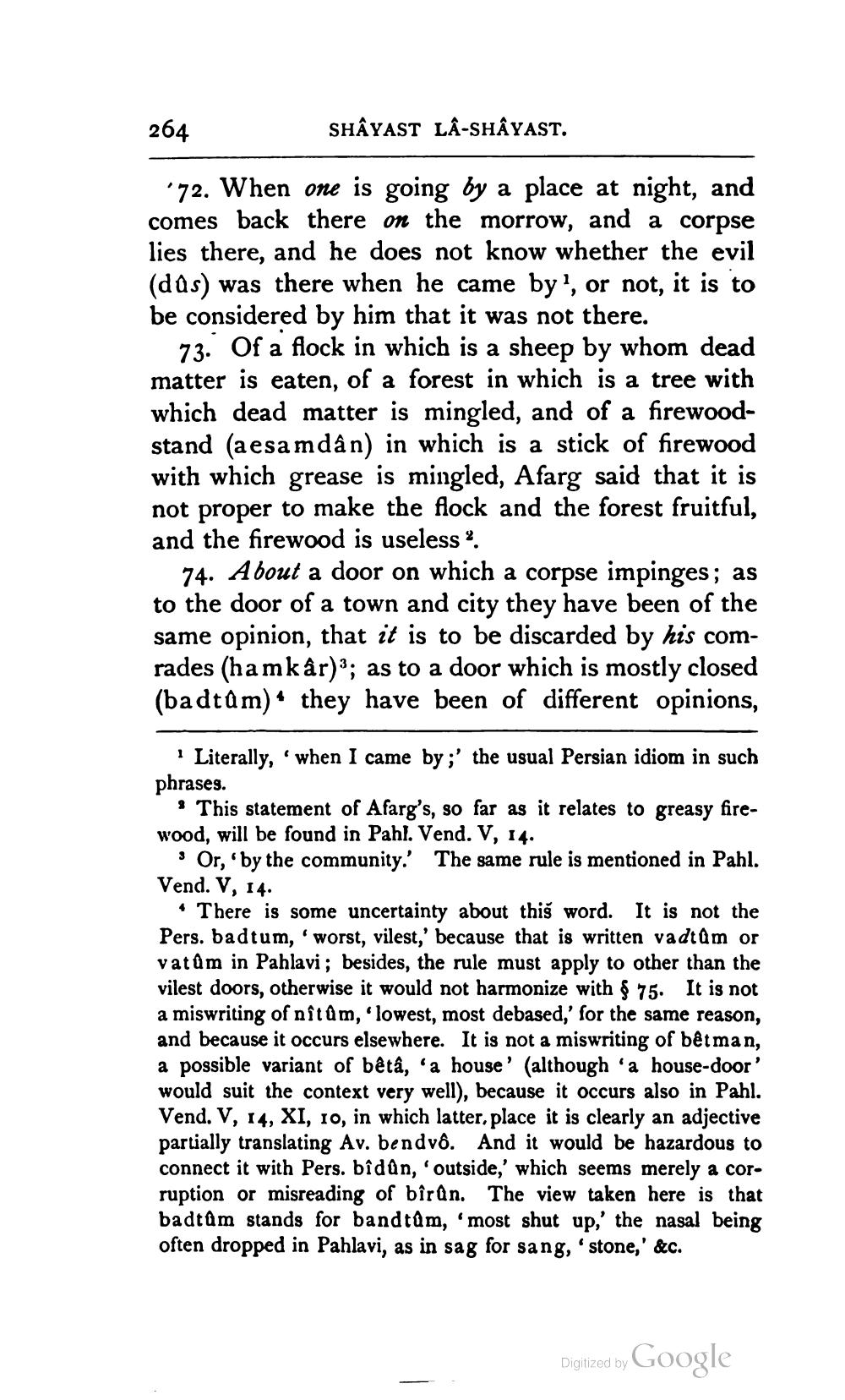________________
264
SHAYAST LÂ-SHAYAST.
72. When one is going by a place at night, and comes back there on the morrow, and a corpse lies there, and he does not know whether the evil (das) was there when he came był, or not, it is to be considered by him that it was not there.
73. Of a flock in which is a sheep by whom dead matter is eaten, of a forest in which is a tree with which dead matter is mingled, and of a firewoodstand (a esa mdân) in which is a stick of firewood with which grease is mingled, Afarg said that it is not proper to make the flock and the forest fruitful, and the firewood is useless
74. About a door on which a corpse impinges; as to the door of a town and city they have been of the same opinion, that it is to be discarded by his comrades (ha mkâr)3; as to a door which is mostly closed (badtûm) they have been of different opinions,
"Literally, when I came by;' the usual Persian idiom in such phrases.
* This statement of Afarg's, so far as it relates to greasy firewood, will be found in Pahl. Vend. V, 14.
s Or,' by the community. The same rule is mentioned in Pahl. Vend. V, 14.
• There is some uncertainty about this word. It is not the Pers. badtum, 'worst, vilest,' because that is written vadtam or vatům in Pahlavi; besides, the rule must apply to other than the vilest doors, otherwise it would not harmonize with $ 75. It is not a miswriting of nitům, 'lowest, most debased,' for the same reason, and because it occurs elsewhere. It is not a miswriting of bêtman, a possible variant of bêtâ, 'a house' (although 'a house-door' would suit the context very well), because it occurs also in Pahl. Vend. V, 14, XI, 10, in which latter, place it is clearly an adjective partially translating Av. bendvô. And it would be hazardous t connect it with Pers. bîdun,'outside,' which seems merely a corruption or misreading of bîran. The view taken here is that badtâm stands for bandtam, 'most shut up,' the nasal being often dropped in Pahlavi, as in sag for sang, stone,' &c.
Digitized by Google




